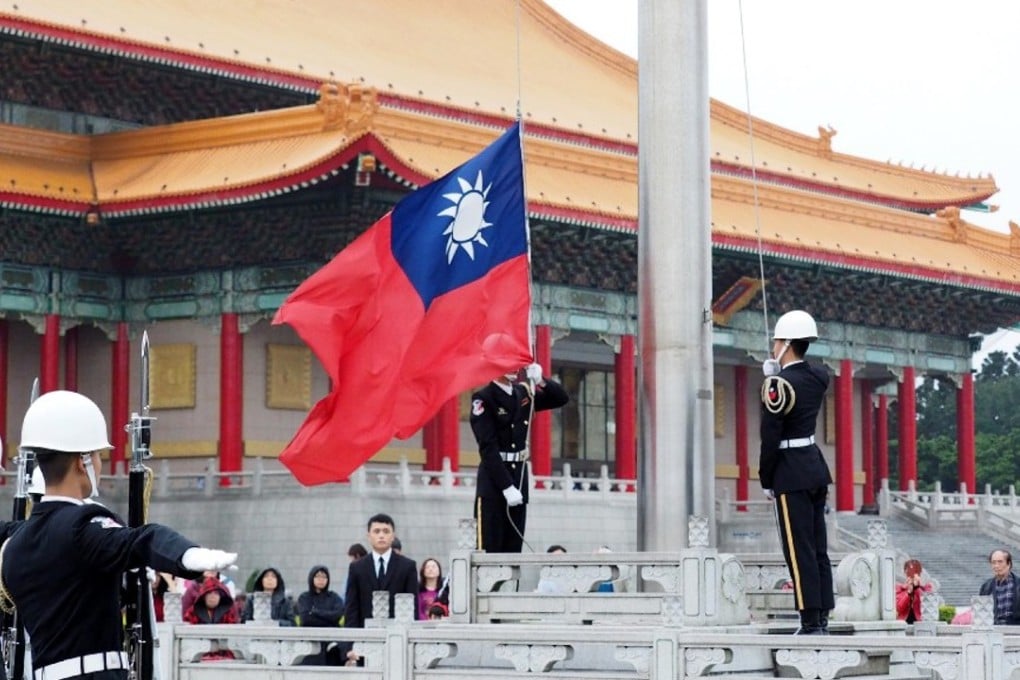Advertisement
When will Beijing’s patience with Taiwan run out? Most likely by 2033
Yiu Chung Wong says a clue to when Beijing will push for unification with Taiwan – by force if necessary – may lie in the important dates Xi Jinping mentioned in his 19th party congress speech. Meanwhile, China is laying the groundwork with carrot and stick measures
3-MIN READ3-MIN

Despite the urgency of the Taiwan unification issue for the leadership of the Communist Party over the years, President Xi Jinping seems willing to bide his time. However, there are ominous signs that the mutual relationship across the Taiwan Strait is deteriorating after Tsai Ing-wen was elected Taiwan’s president in 2016 and after Donald Trump became US president in early 2017.
First, it has been rumoured that the Trump administration is attempting to shake off the yoke of the “one China” principle which constrains what the US can do vis-à-vis Taiwan. Second, the US has expressed grave concern over the gradual build-up of China’s military weaponry in the South China Sea and has insisted on conducting freedom of navigation operations there. On trade, the target of US protectionism is China.
In 2017, the National Defence Authorisation Act was passed by the US Congress to allow American warships to conduct port calls in Taiwan. Moreover, on March 5 this year, the Taiwan Travel Act was enacted to encourage visits between officials at all levels. These landmark developments are tantamount to giving Taiwan “semi-official” status and could gradually constitute a paradigmatic shift in the US “one China” policy. A People’s Liberation Army general was quoted in a Chinese newspaper in Hong Kong as saying that “the date that US warships make a call on a Taiwanese port would be the date for unification”. Is this a warning to the US or a threat to Taiwanese authorities?
The revision of the constitution to remove term limits on the offices of the president and vice-president may be related to the issue of unification
Beijing’s official position is still “peaceful unification” and “one country, two systems”. However, in the official documents and speeches by leaders from Deng Xiaoping to Xi Jinping, China has never renounced the use of military force in achieving unification. Undoubtedly, this would be reserved as the last option.
Advertisement
Is Beijing ready to use force in the near future? Perhaps not. When the subject of unification came up during a discussion in the early 1970s between Mao Zedong and Henry Kissinger, secret envoy for then US president Nixon, Mao smiled and said, “We can wait for 100 years.” This means China might not be unified until 2049. Does China have so much strategic patience? It seems unlikely. Or was Mao simply kidding?
In his political report to the 19th party congress in 2017, Xi Jinping reiterated a number of important dates: the centennial anniversary of the establishment of the Communist Party in 2021; the centenary of the founding of the People’s Republic of China in 2049; the establishment of a relatively prosperous society by 2035; and, becoming a modern and civilised nation-state by the mid-21st century.
Advertisement
My hunch is that 2021 is too close – gearing up militarily is a huge task that requires years of preparation. Besides, China’s “Belt and Road Initiative” was launched just a few years ago and its success remains to be proven. The issue of North Korean denuclearisation is tricky despite the recent rapprochement between the US and Kim Jong-un. Relations with Japan remain cool and the South China Sea is still a hotly contested spot. In sum, 2021 will not be the year for unification by force. On the other hand, 2049 is too far away.
Advertisement
Select Voice
Select Speed
1.00x